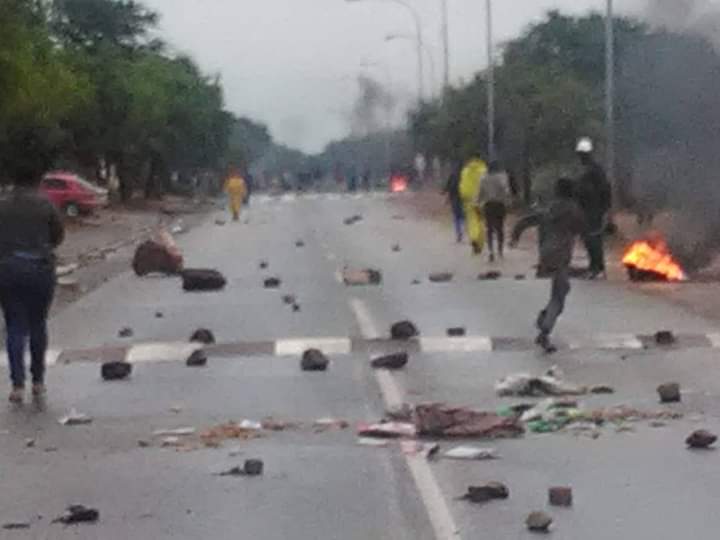Download PDF |
Residents from Emvagwe iSporo, an informal settlement in Kliptown, a township in the south-west of Johannesburg, took to the streets in the early hours of the morning of Monday, 28 September 2020, to protest about the lack of service delivery in the area.
From late 2019 to early 2020, Johannesburg City Power did a project in some of the informal settlements in the Kliptown area. They installed electrical poles, columns, boxes and meters in the informal settlements and residents were supplied with prepaid electricity in these areas. The project, which was meant for the whole Kliptown area, stopped, presumably due to the lockdown, but it has still not resumed even after COVID-19 restrictions were lifted. This has angered residents in the neglected areas.
“We want to know why we have also not received electricity yet. We are struggling as well, and we rely on illegal connections which are not safe, or use paraffin and candles. We have been living like this for many years and the government has done nothing to help us. My wife wakes up early and goes to work and my children have to go to school. I have to wake up early to make sure that the children have lights and water to get ready,” said Thabo Mbele, a resident of the area.
Service delivery has always been bad in South Africa, especially for working class communities. Working class communities have been deprived of good service delivery for many years and this is evident in public housing, healthcare and education system. This is often due to the misuse of funding allocated to public services.
Service delivery is terrible and often non-existent in Kliptown, despite it being a place of historical significance. The area is still underdeveloped and is still made up of many informal settlements and areas with old and worn-out houses. The residents of these areas still live in informal homes and don’t have access to proper electricity, sanitation or water. The area has been overlooked for a long time and residents are fed up.
This article was submitted on 8 October 2020. You may republish this article, so long as you credit the authors and Karibu! Online (www.Karibu.org.za), and do not change the text. Please include a link back to the original article.



